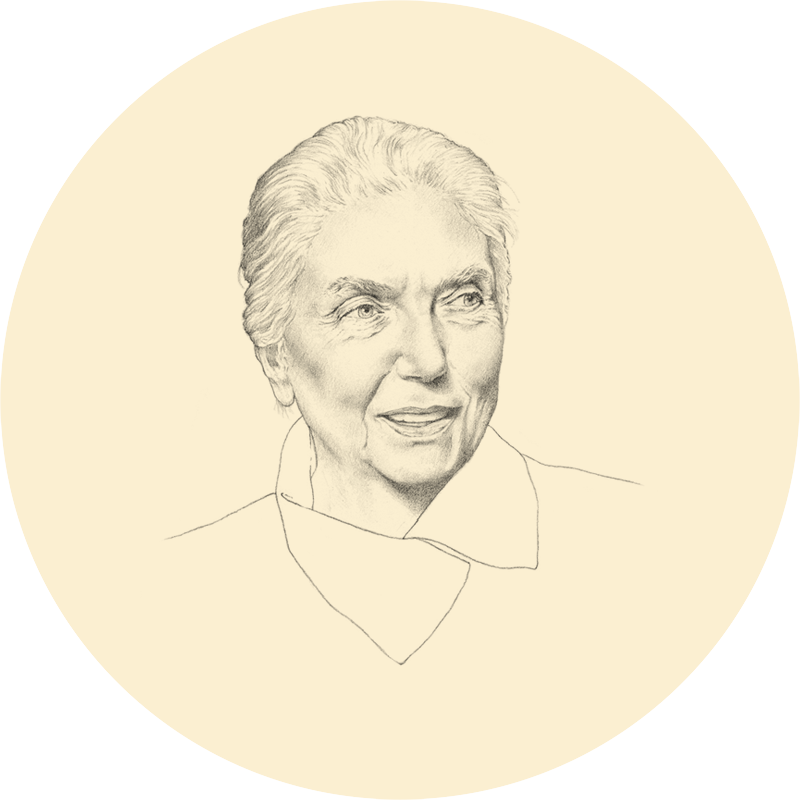You were always very direct. A strong, forceful character. “Since I am not powerful, I am aggressive.” You had to defend yourself. You knew that being a woman – and a beautiful one as well – could be an obstacle in the little world of Italian culture. But you had writer friends like Cesare Pavese, your classmate in Turin, who asked you to translate the Trois contes of Gustave Flaubert for Einaudi in 1944. This too is a way of becoming a writer. By chance. Working as a translator removed your last doubts about the novel format, which you had seen as a kind of entertainment for young bourgeois ladies. Who were so different from you. You were an artist. “I was indebted to Flaubert – you remarked years later – for my passage from painting to fiction. For me, A Simple Heart was decisive, the end of my prejudice against the novel.”
There was Flaubert, and there was the war. They bombed your house in Turin. You stayed in Cuneo. Your first life was packed away in dozens and dozens of trunks. You opened them up again in Milan, in 1947, when with Piero you were reunited with Cenzo. Montale reached the city the next year, settling on Via Bigli. You would never move away from Milan, after that.
Your second life began. Cenzo found the home best suited to your lives: in the heart of the city, the artists’ quarter, but secluded. It was Brera and at the same time it wasn’t. The building, hidden in a courtyard, could not even be glimpsed from the street. It was built with the rubble from the bombing, new, like your relationship with the city. You were Milanese in your own way. As Savoyards.
Elio Vittorini acted as a bridge between Turin and your new city. He had just begun a publishing series, I gettoni, for Einaudi. The first book was by Franco Lucentini. The second was your Metamorfosi. You began to weave a new world of relationships. But no whirl of society. Just places in the city in which to meet, to swap ideas and enthusiasms.
When you went out, you walked to Piazza della Scala where you waited for Cenzo to emerge from Comit, perhaps with Sergio Solmi, director of the legal division at the time. Then you headed for Piazza Meda, at the Blue Bar, for coffee. You would often run into Enzo Paci, an acquaintance from your university years, or Vittorio Sereni. Gillo Dorfles or Eugenio Montale. With Montale, who had become the music critic for Il Corriere della Sera, you often went arm in arm to opening nights at La Scala. If it wasn’t the Blue Bar, it was the Einaudi bookshop on Via Manzoni, where Vando Androvandi played host to you or to Vittorini, with whom he had founded the Casa della Cultura, or Leonardo Sciascia, when he dropped by the city for a visit. Later in life, you often went to see Ernesto Treccani, in his “Casa delle rondini” on Via Carlo Porta. You shared a love of art and memories of the partisan struggle.
You had a childish name. You were Lalla for friends, but Graziella Monti for your students at the Arconati middle school, until your retirement from teaching in 1959. After arriving in Milan you never gripped a paintbrush again, never touched a canvas. But you wrote tirelessly, year after year, with painstaking rigor. You laid bare your existence, with perseverance, without excuses. You lived in order to tell about it. Writing was simply your way of being.
You despised the “tedious” conflict between the “I who writes” and the “I who lives.” What was the difference? You narrated your life, but you never wrote an autobiography. Memory was a tool of art; your writings were not diaries. After all, Marcel Proust had made you understand that. Discovering him was an epiphany, a frustration, almost. “I devoured Combray with the anguishing sensation that Proust had already written my book.”
ASSOCIAZIONE AMICI DI LALLA ROMANO
Lalla Romano
Writer | Brera – Garibaldi | From the 1960s to the end of the millennium
Biography
Lalla Romano was born in 1906 at Demonte (Cuneo). After taking a degree in Letters at the University of Turin, she began to study painting with Felice Casorati. For twenty years she was both a painter and a writer, as well as a teacher. Encouraged by Montale, she made her debut in 1941 with the poems of Fiore. In 1947 she moved to Milan, and stopped painting. In 1951, for Einaudi, she published Le metamorfosi, the first of many narrative works, including: Maria, La penombra che abbiamo attraversato, Le parole tra noi leggere (Premio Strega 1969), Una giovinezza inventata, Nei mari estremi… Though nearly blind, she continued to write until she died (in Milan, 2001).
Pag. 1 2 3 | PDF Version
